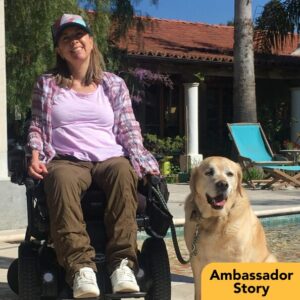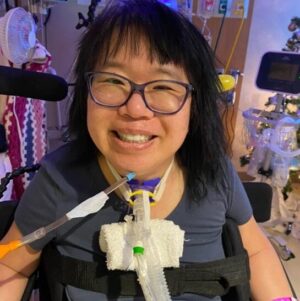In May 2024, a unique video from our client community went viral.
Living with Duchenne muscular dystrophy, 14-year-old Andrew Palmer bursts into grateful tears as he receives a surprise power chair that will radically improve his independence and mobility at home.

At Help Hope Live, we already knew why this moment meant so much to Andrew and his family. Fundraising clients with Help Hope Live since June 2021, the Palmers had previously raised over $70,000 in just two-and-a-half months to fund a wheelchair van.
We interviewed Andrew and his mom, Katherine, to get the full story behind the viral moment.

Mobility, Independence, and Peach Lemonade with Andrew Palmer

If someone asks you why you use a power chair or wheelchair, what do you tell them?
I have Duchenne muscular dystrophy, so my legs don’t work the same as yours.
Tell us about the moment when you got your new power chair.
I felt so excited and grateful. Before we got the chair, I didn’t have a way to get myself around in our house—my mom and stepdad had to do everything for me.
Now, I can do a lot more for myself. I can move room to room without asking for and waiting for help.
I feel more independent now.
Were you surprised that the video became so popular?
Yes. I can’t believe millions of people have seen it. It’s really awesome.
Most people don’t think about using their legs and feet. My life is not “normal” to them. When they saw how happy the chair made me, it made them think about how lucky they are.
What is your favorite part of the day and why?
Right now, drinking this peach lemonade. Ahhh…
(Katherine: Andrew, that’s not what they mean!)
Really, Mom. It’s the food! I also like playing with my friends on my Xbox, and cars—all of them.

What do you like most about your hometown?
I like the hospitality, and my friends and family and community. Everyone is friendly and nice to me.
Is there anything else you want to share?
Just because I can’t walk doesn’t mean I’m different from you.
(Katherine: Are you sure that’s it?)
Sigh. And I love you, Mom.

Community, Hope, and a Viral Moment with Mom Katherine Palmer

Tell us the story behind Andrew’s viral moment receiving a surprise power chair.
Andrew has a 460-pound power chair that we call his “outside chair.” It goes to school with him and out in the world wherever he goes.
We rent a duplex that has a steep set of stairs leading up to the front door. There is a big tree right at the foot of the stairs.
There is no way to get that outside chair in and out of our house every day.
We’ve even had a contractor come out to look just to tell us it’s not possible.
The smaller power chairs that are available are not covered by insurance and are several thousands of dollars out of pocket. We are not wealthy people.
For the past few years, Andrew has been stuck in a dinky little manual wheelchair while he is at home that he can’t really maneuver himself due to the muscle loss in his arms.
Our state has an organization called I-Can of Arkansas where people can donate used medical equipment. People who need that equipment can rent it, borrow it, or sometimes receive it free of charge depending on the item.
I scan through the inventory every now and then to see if they have anything Andrew needs. I came across this power chair and wasn’t sure if it would be the correct size for him or if we could even get it into the house, but I went ahead and put in a request for it. The request was accepted on the same day.
Two days later, Andrew’s stepdad, Josh, and I picked it up. We spent two hours pushing, pulling, ratcheting, and sweating our way into getting the power chair inside.
We chose not to tell Andrew in advance just in case it didn’t work out.
We picked Andrew up from school. The video starts with Josh carrying Andrew inside, as he usually does. Andrew was expecting to be set down in his old manual chair.
In the video, you can see the exact moment when Andrew realized he was sitting in a power chair instead.

Once Andrew noticed he was in a power chair, he bursts with excitement and gratitude.
He knows he now has a chair he can operate himself, in his own home, for the very first time.

The independence and autonomy he gets from the chair is showing: Andrew has definitely been happier AND a bit sassier since he’s gotten this chair.
Tell us about how Andrew got diagnosed, and how the diagnosis has impacted his mobility.
I had never heard the word “Duchenne” in my life until Andrew’s neurologist mentioned it as a possible diagnosis.
Andrew didn’t hit a single physical milestone on time as a child. When he was six months old, his pediatrician sent us to neurology and a geneticist.
Andrew was diagnosed with Duchenne muscular dystrophy at 19 months.

He took his first steps just five weeks shy of his second birthday. While his body never moved exactly like the bodies of kids without disabilities, Andrew was still able to walk and climb stairs and dance. That little boy LOVED to dance—he still does today, just in a different way.
Andrew always fell a lot, but the frequency of those falls ramped up when he was five years old. That’s when I began sending him to school in a manual wheelchair.
Over time, Andrew began spending more time in his wheelchair than out.
When he was finishing up 5th grade, he fell and broke his leg. A year later, he fell and broke his other leg. He wasn’t even walking: he was standing, but his legs had grown so weak that they stopped supporting him.
Andrew collapsed to the ground, and he never walked again.
He was still able to hold his weight standing still for about a year after that, but that ability is gone now. He is slowly losing the strength in his arms over time, too.

How does Andrew’s diagnosis impact your family’s day-to-day life?
Our life looks different from other families in a lot of ways. Instead of days filled with soccer practice and playdates, it’s a lot of doctor appointments, hospital admissions, and physical therapy sessions.
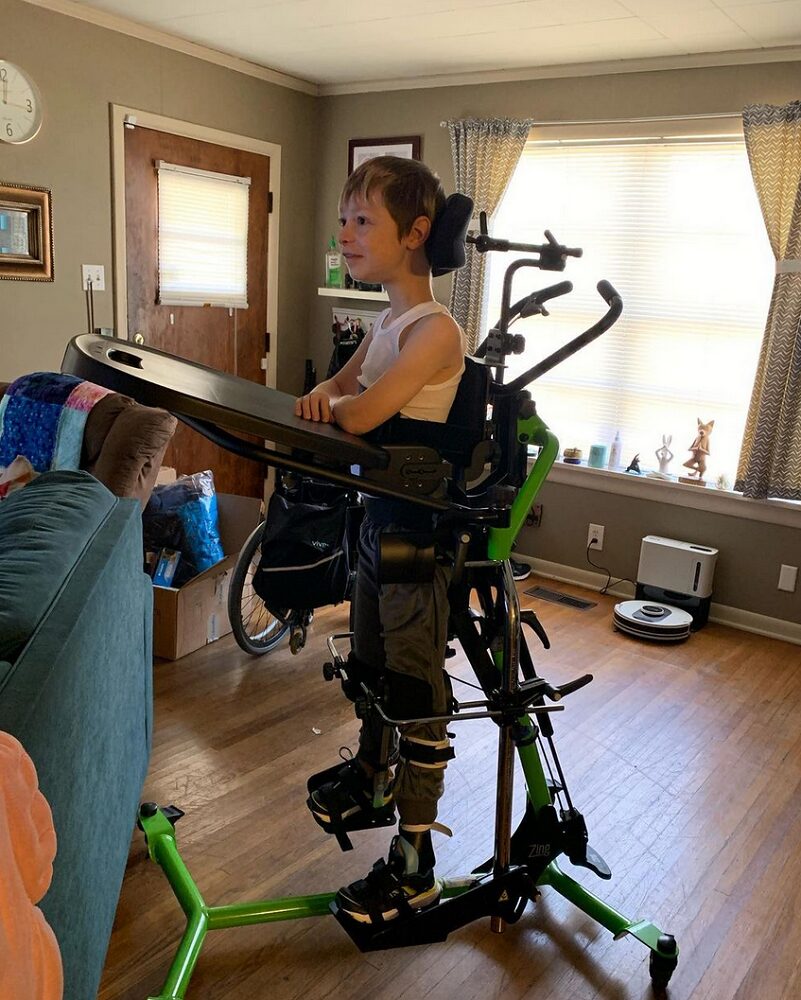
Josh and I make his meals, help him in the bathroom, and keep track of appointments and medical needs.
Andrew’s friends can visit him at our house, but he can rarely go over to their houses due to accessibility issues.
No sleepovers or overnight events due to his medical needs and the machines he relies on at home, including one that shakes out fluid caught in his lungs or chest, a cough assist device to expel that fluid, and a BiPAP machine for his sleep apnea.
Andrew can’t be left home alone, not even for me to take a trip to the grocery store.
Josh and I can’t have a date night out of the house unless someone who knows his medical schedule and how to work all of his machines is available to be with him.
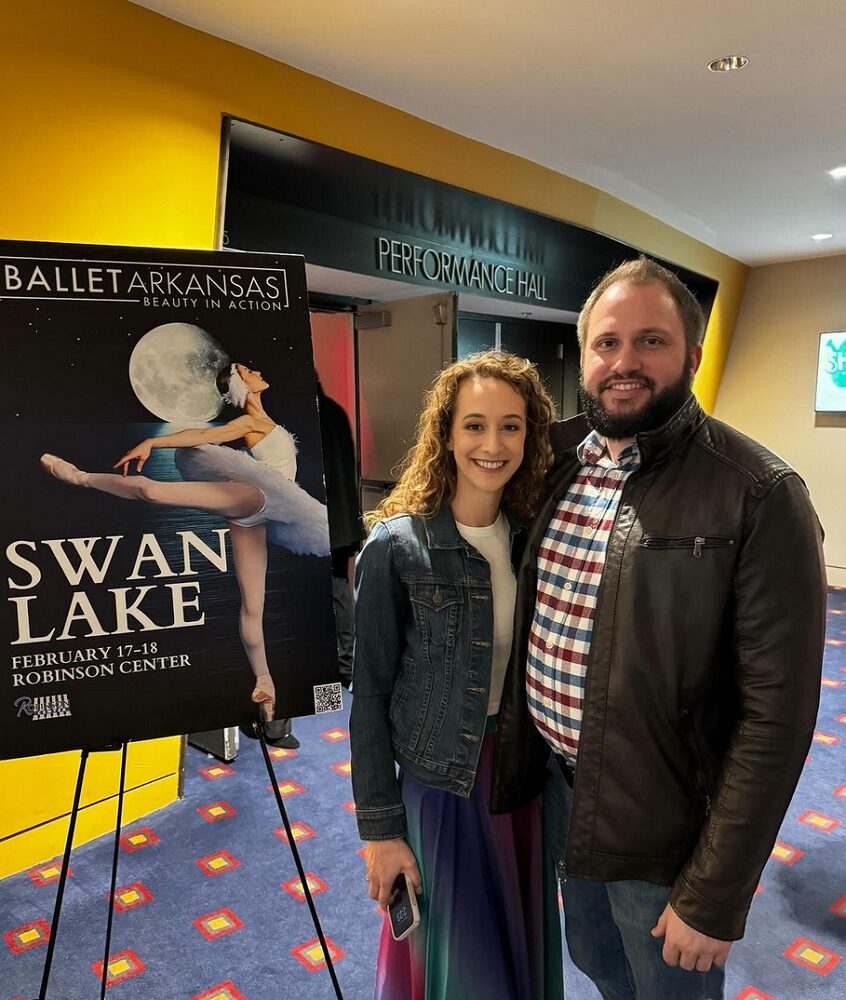
He can’t get himself ready for school on his own, and he can’t physically take on chores like folding the laundry or cleaning his room.
It is not an easy life for any of us, but what these differences and challenges bring with them is our ability to see life for how precious it is.

We’ve known for almost all of Andrew’s life how incredible each of his milestones are and how tragically short they will last.
That awareness allows us to have a perspective of immense gratitude and appreciation for each and every milestone.

All that being said, Andrew has many of the same qualities as any other 14-year-old. He’s got mood swings, attitude, pushback, and the teenager-knows-everything mentality—”Actually, it’s 3:12 right now Mom, not 3:15.”
All kids are a mess at this age, but Andrew also has a huge sense of gratitude and the humility that comes from having no choice but to rely on others.
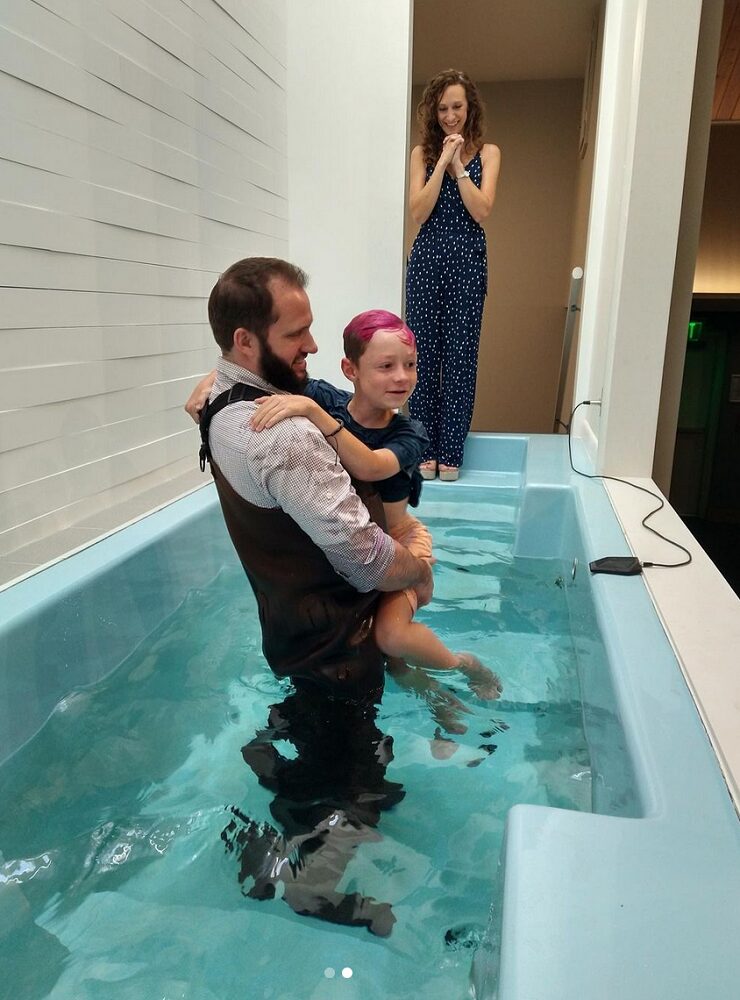
What are some of the financial challenges that come along with this life?
The bottom line is that insurance doesn’t cover a lot of what Andrew needs.
There’s the cost of nutritional needs, supplements, co-pays, therapies, home equipment, home modifications, and so much more.
Everything labeled “special needs” or “adaptive” costs five times as much as it costs for healthy people. Even a hotel room is more expensive when you need the one they label “handicapped.”
We’ve had to purchase large items as well as lots of small purchases that add up, like a water bottle that attaches to his chair, feeding utensils, personal care items, and everything in between.

Why did you start fundraising with Help Hope Live?
It’s easy to fall behind financially when what your child needs is so expensive, especially when that child is frequently sick, needs hospitalizations, and has to see specialists several times per month.
To add to that financial strain, I can’t work a normal 9-to-5 job because I have to be able to jump and run to Andrew at a moment’s notice.
One of the big purchases we needed was a wheelchair accessible van to give Andrew the quality of life he deserves.

His outside chair was permanently stuck at his physical therapy center for over a year because we had no vehicle that could transport it elsewhere. We wanted Andrew to have the ability to use that chair at school and anywhere else he was going.
I learned about Help Hope Live from a friend, and when I found out at it was a 501(c)(3) and that donations would be tax deductible, I was thrilled. Then I learned Help Hope Live didn’t take a large percentage of donations.
I began to feel finding Help Hope Live was like an answered prayer.

What did it feel like to reach your first fundraising goal so quickly?
We raised the $70,000 with Help Hope Live in under three months.
It blew our minds and changed our lives, and it gave Andrew the ability to roll around in the world with new freedom.

To know that so many people love my little boy so much that they were willing to give financially to make this van happen just overwhelms me.
God put us smack-dab in the middle of an incredible community, and I will never stop thanking Him for it.

His needs are ongoing, so we will keep fundraising with Help Hope Live to keep giving Andrew the life he deserves.
What advice do you have for other families raising a kid with disabilities?
I think people who are entering this journey for the first time or have been here a while may think or feel that they are alone.
You are not alone. There are so many of us. We see you, and we love you.

Don’t be afraid to speak up when you need help, and don’t be too proud to take that help when it is offered. Raising kids like Andrew truly takes a village.
Your village is out there—you just have to be willing to embrace it.

Make a donation in Andrew’s honor at helphopelive.org and keep up with Katherine, Josh, and Andrew on Instagram @alittlegramming.

